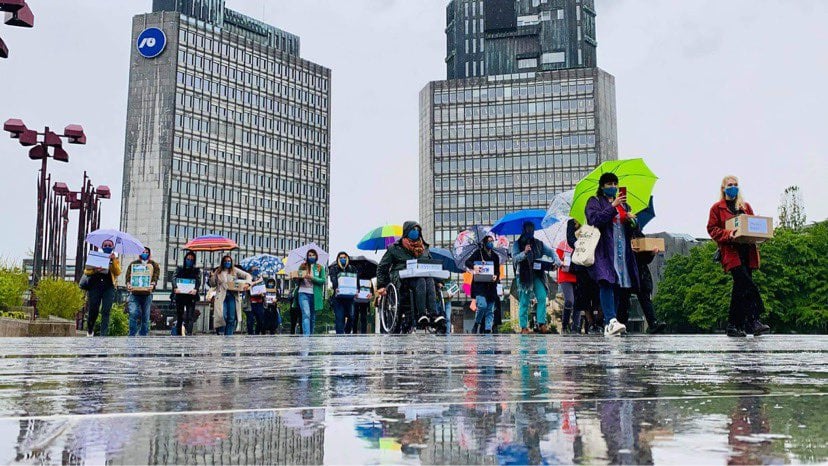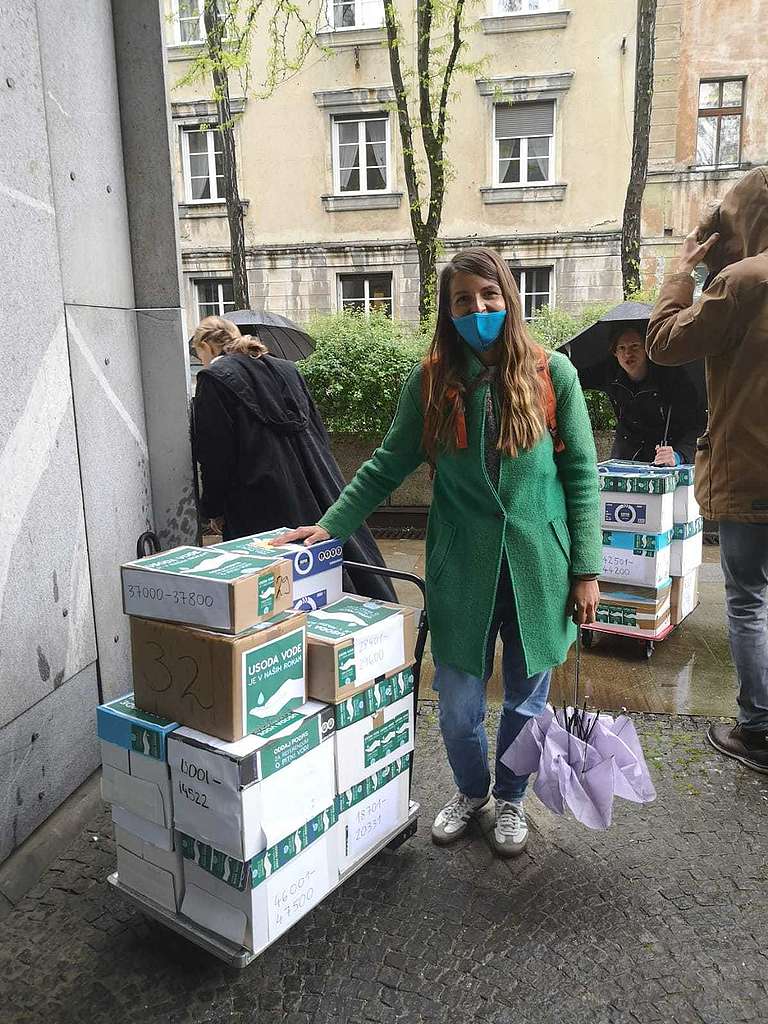Ljubljana, 26 May 2021 – In its biggest environmental mobilization so far, civil society in Slovenia has managed to secure a referendum on the contested Water Act by collecting more than 50 000 certified signatures of citizens demanding a referendum. The referendum will take place on the 11th of July. The campaign “Za pitno vodo” (For drinking water), led by a coalition of environmental and feminist groups, is encouraging people to vote against the new provisions of the Water Act that would open the door for commercial constructions in coastal strips, thereby endangering surface and groundwater and making it more difficult to protect the right of access to water as a public good.
Uroš Macerl, part of environmental organisation Eko krog and recipient of the 2017 Goldman Environment Prize, commented:
“If this law is confirmed, the safety of our surface and groundwater will be jeopardized and there will be restaurants, hotels, shopping malls on now protected areas, where the owners will tell us how much it will cost us to be able to access the coastline. Winning this referendum is challenging, but we think people are fed up with policies based on profiteering on account of destroying vital ecosystems. We have a chance to make a real difference this time and preserve one of our biggest natural resources”
Nika Kovač, representative of feminist organisation Institut 8th of March, one of the leading coordinators of the campaign, said:
“We are convinced that the feminist struggle is also an environmental one. We must work to build solidarity between environmental and other social issues and groups. This referendum is our joint fight.”
Sara Kosirnik, Greenpeace Slovenia, adds:
“What we have been witnessing in Slovenia in the past year is almost a textbook example of taking an extraordinary crisis such as a global pandemic and in its guise dismantle environmental protections. The idea of “economic development” that we are being sold does not take into account the long-term environmental harm. It sees people only as consumers and nature as a commodity. Forests are an obstacle in the way of a highway construction, and the coastline is just a lucrative location for luxury hotels. Economic development after the COVID-19 crisis must be based on the highest environmental standards, it must help solve the climate crisis and nurture the living world rather than destroy it. Right now, the world is in desperate need of ambitious environmental actions and policies.”
On 30 March 2021, the Slovenian National Assembly passed an amendment to the Water Act, which in Article 37 introduces controversial changes that pave the way for construction projects on water and coastal areas. The Water Act allows the construction of facilities such as restaurants, tourist accommodations, shops, parking lots, etc. on the coastal strips. Development of coastal areas could limit people’s access to lakes, rivers and the sea and increase the risk of pollution of surface and groundwater, thereby endangering the quality of drinking water.
Under the banner of removing administrative barriers and boosting the economy after the COVID-19 pandemic, the Government of the Republic of Slovenia has been implementing extensive legislative changes over the last year that would dismantle key environmental safeguards. In addition to the amendments to the Water Act, the Nature Conservation Act has already been amended, and amendments to the Environmental Protection Act, the Construction Act and the Spatial Planning Act have also been announced.
The right-wing government of Prime Minister Janez Jansa that came into power at the start of the pandemic and is taking over the Council of the EU’s rotating presidency in July, has been gaining unfavorable international spotlight on other issues. There have been growing concerns in the EU regarding the attacks of the slovene government on independent media in the country.
Contact:
Katja Huš, [email protected], 00 386 40 981 621.


